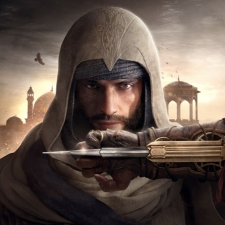The games industry moves quickly and while stories may come and go there are some that we just can't let go of…
So, to give those particularly thorny topics a further going over we've created a weekly digest where the members of the PocketGamer.biz team share their thoughts and go that little bit deeper on some of the more interesting things that have happened in mobile gaming in the past week.

Unity's Runtime Fee Farrago: The whole story in one place
Ah what a week. Just when you're expecting exciting new details of Unity's new AI tools to land on your desk, the press release that arrives instead contains a universal fuck you to everyone who uses their platform. My my. Didn't see that one coming.
Still, no point in hauling them over the coals here… Instead we've put everything you need to know about why tens of thousands of loyal Unity users are furious (and why some of the mobile world's biggest games are being held to ransom) in one place. Link above.

Niantic and Capcom's Monster Hunter Now launches with three million pre-registrations
Even putting the Unity farrago to one side, it’s been a busy week for mobile gaming news - one full of exciting announcements and releases. From a Vikings game on Netflix to an upcoming NFT dinosaur game, yeah, there’s been a lot going on… A dinosaur game!
Anyway, putting my inner child to one side for a second (like that’s possible), I would say Monster Hunter Now has roared the loudest this week. Combining the IP of a Japanese gaming giant with the tech of AR powerhouse Niantic, and using said combination to hunt monsters in the real world, is a story we’ve all heard before. It’s been seven years since Pokémon Go’s tale began, and Monster Hunter Now has the right formula to do it all again.
Niantic and Capcom’s new game launched this week after accumulating an impressive three million pre-installs, and since entering players hands it has already proven to be a faithful adaptation of classic Monster Hunter mechanics, merging surprisingly well with Niantic’s niche.
Whether or not Now becomes as big a behemoth as Pokémon Go, it’s always fun to start a new game. And it has the Pukei-Pukei too! Niantic, add the Astalos and Tigrex next, please.

Square Enix shares drop 30% after lacklustre Final Fantasy roll-out
Here’s a fun piece of trivia: Final Fantasy, one of the world’s most beloved gaming series’, got its name due to the fact that it may well have been Squaresoft’s final game before collapsing. Luckily, the initial game proved a hit, spawning a hit franchise encompassing games, films, anime, live concerts, merchandise and, of course, mobile gaming. From ports to original games, the series has found success on phones, but also significant struggles.
Ever Crisis is the latest game in the company’s mobile roster, bringing the hit Final Fantasy VII to mobile in a new form, and giving players the opportunity to experience not just the base game but its various spin-offs and sequels all in one place. While this unique selling point has led to the game garnering five million downloads in its first week, the game received mixed reviews for its use of gacha mechanics.
While gacha is a proven moneymaker, the question remains: is it always a necessity? Many gamers and governments find issue with the mechanics, with progress is too heavily tied into luck and in-app purchases. As such, it appears that this latest retelling of the Compilation of Final Fantasy VII (to give the subseries it’s proper name) has stretched itself a tad too thin, putting monetisation and mass appeal above its existing fanbase.
Gacha, in and of itself, isn’t a dealbreaker, but it’s not a gamebreaker, either. While games certainly exist that benefit from the mechanic, it’s also not one that needs to be brought into every title, and doing so can lead to significant backlash - both from governments and consumers.
Despite some success on mobile platforms, Square Enix has repeatedly failed to capture the same level of adoration and acclaim as it has managed on other platforms, and it appears that this latest attempt to leverage the proven popularity of gacha has left some fans uninspired. With the company reporting $2 billion in losses since June, largely due to the shuttering of several mobile games, it may be time for the company to reevaluate its strategy on the world’s most profitable platform.

Are today's developers being held back by a global talent shortage?
According to a report from software developer Perforce, one of the biggest challenges developers commented on was facing a talent shortage in the industry. That blows my mind because the games industry has always had such a massive amount of talent. Not only that, but it’s an industry that has had vast appeal, with many people having ambitions to break into the industry.
So what’s the problem?
In my opinion, it isn't that the talent isn’t out there. We have industry veterans with years of experience under their belts, and new people are always looking to get involved in games. You only have to look at how education has changed over the years with its expanding list of games-related courses in colleges and universities.
The problem may be in what the industry expects. Certain game studios won’t even look at you without a university degree; some won’t even glance at your CV unless you have X amount of years experience. Don't get me wrong, I do understand that teams want to ensure that they’re hiring the right person for the job, but if the barrier is so high there’s potentially amazing creative talent being looked over simply because they’ve never shipped a triple-A game before. Or are yet to get that masters degree.
This is something I sincerely hope we see change as we head into the back end of 2023 because the gaming industry has a mass of creative and passionate people just waiting to embark on a new journey; smart people need to give them a chance to show their talent.

Hungry Shark developers Ubisoft London to close
It’s always sad to see a studio shuttered, especially one with such backstory as Ubisoft London. I think this move reflects uncertainty behind the scenes at Ubisoft regarding mobile, and their aims to bring core console titles to mobile instead of creating bespoke games (as shown with Assassin's Creed Mirage at the recent Apple event) is a concern.
The big surprise with the iPhone 15 reveal, at least for me, was that they would be able to run games such as Resident Evil Village and Assassin’s Creed Mirage natively. I think, if this works as intended, this would be a huge step forwards. However, it would also risk severely damaging the mobile industry as it stands.
We’ve seen how many console adherents praise graphical fidelity over anything else, and say what you like about mobile, but the inherent limitations of the platform have made perfect for stylised, creative graphics and gameplay based on a touchscreen. Sadly, both innovations may be lost if the capabilities of the platform achieve parity with console and PC.
Will we see a start in big publishers lessen their mobile development in favour of full cross-platform functionality for their titles? Stylised graphics and clever gameplay may not be the only casualty of this move, as studios such as Ubisoft London lose their place.





















